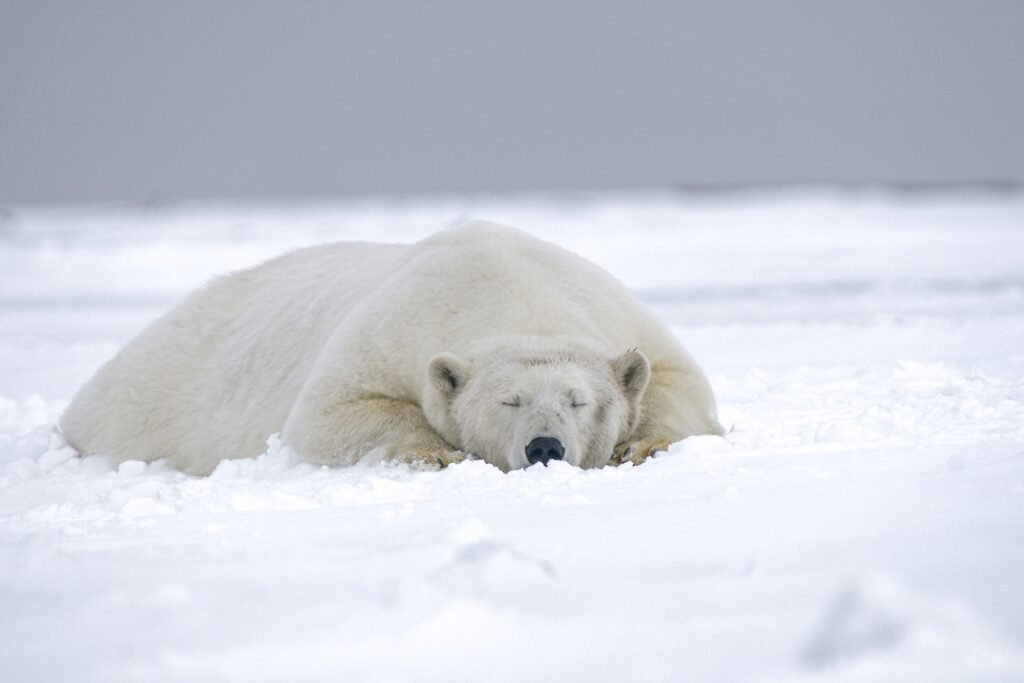Chubb Insurance Bans Underwriting Arctic Refuge Drilling
Chubb insurance company officially signed a new policy prohibiting the underwriting of oil and gas extraction projects in the Arctic National Wildlife Refuge (as well as other government-protected conservation areas).
“After the Arctic Refuge was opened for oil and gas development, we have met with and encouraged financial institutions and insurance companies to respect the people who live and thrive off this land, which we consider very sacred. Since our first meeting, all corporate lease holders have exited the Refuge and every major U.S. and Canadian bank refuses to underwrite such projects. Chubb’s policy is a first for the American insurance industry and shows leadership to protect sacred lands,” said Bernadette Demientieff, Executive Director, Gwich’in Steering Committee. “The Gwich’in and the Porcupine Caribou Herd depend upon Iizhik Gwats’an Gwandaii Goodlit (the sacred place where life begins) for our identity, our culture, and our ways of life. We and the animals we care for are intrinsically linked to this land, and we are grateful to Chubb for this policy.”
Chubb is actually the first American insurance company to make such a policy and now joins 17 other international insurers as well as every major U.S. bank in limiting financing for extractive practices in the Arctic Refuge. This kind of commitment from a major insurer plays a critical role in protecting America’s Arctic. Put simply, you can’t drill for oil and gas without insurance (because drilling is incredibly dangerous and risky), and the more insurance companies that create these policies, the harder it is for oil and gas corporations to start development.
In Chubb’s invitation to its annual general meeting, the company said the following:
“Chubb has consistently been a proactive leader on climate risk management, including by being the first major insurer in the U.S. to announce a coal policy for its underwriting and investment activity in 2019; establishing an oil sands policy in 2022; adopting in 2023 a policy prohibiting underwriting oil and gas extraction projects in certain government-protected conservation areas, including the Arctic National Wildlife Refuge (ANWR), and we intend to develop further conservation criteria for the Arctic, mangroves, peatlands, key biodiversity areas, and recognized conservation areas that allow for resource use by the end of 2023.”
The fight to protect the Arctic National Wildlife Refuge has been ongoing for years. In 1980, Congress passed the Alaska National Interest Lands Conservation Act (ANILCA) which set aside 1.5 million acres of the coastal plain as a “study area.” But 37 years later, a Republican-dominated Congress approved oil and gas leasing in the area through the passage of the 2017 Tax Act. Land that had been treated as federal wilderness for nearly 40 years was suddenly under attack from the same system originally intended to protect it. It was time for an additional tactic to ensure regular administration changes couldn’t so easily turn back protections.
How Insurance Companies Play a Role In Public Lands Protections
You may recall that in 2022, the insurance company American International Group (AIG) made similar promises to keep their financing out of drilling operations in the Arctic. However, AIG failed to make clear if that policy would encompass the Arctic Refuge specifically and never responded to outreach from the Gwich’in Steering Committee and their allies.
Similarly, Alaska Wilderness League and all our Arctic Refuge partners have been engaged in a campaign to urge Travelers Insurance to adopt a policy against insuring oil projects in the Arctic Refuge. Together with our partners, we delivered more than 64,000 signatures on a letter asking Travelers’ CEO to meet with the Gwich’in Steering Committee and agree to not insure drilling in the Arctic Refuge. Like AIG, we’re still awaiting a response from Travelers — as well as Liberty Mutual and The Hartford (some of the few remaining insurers for Arctic drilling).
The corporate movement to address climate continues to grow. Every spring, shareholders in publicly traded companies have a chance to weigh in on how the corporations are run, and this year more than 500 resolutions were submitted with requests that companies address environmental and social issues, 25 percent of which targeted climate. And, the success of increasing corporate climate commitments has been noticed in Congress — in some cases with increasing angst; instead of listening to their constituents who want climate-saving energy policies, Republicans have introduced legislation designed to stop corporations from taking a stand on climate-killing policies.
Time to Take Action
Even as we push Travelers and others to do the right thing, corporate commitment has already led to bigger victories for the Arctic and progress in the urgently-needed transition off of fossil fuels. Despite the lease sale of the Coastal Plain in 2021, all energy companies and leaseholders had walked away from their leases by 2022. Now the Alaska Industrial Development and Export Authority (AIDEA), a public corporation of the state of Alaska, is the only leaseholder remaining, with another sale mandated in 2024. We are eager to build on this momentum to ensure that other insurance companies follow suit and send a cohesive and clear message that Arctic drilling is too risky to fund. You can help protect the Arctic by signing our petition to Travelers Insurance and The Hartford and pressure them to reject Arctic drilling too.

